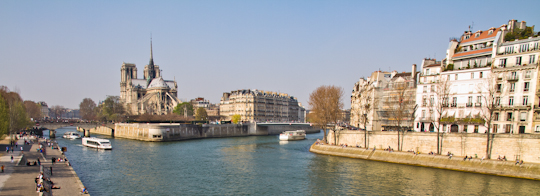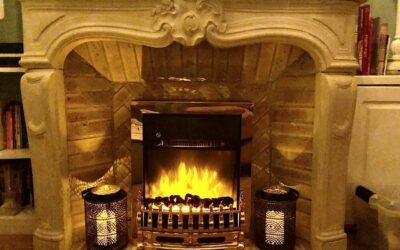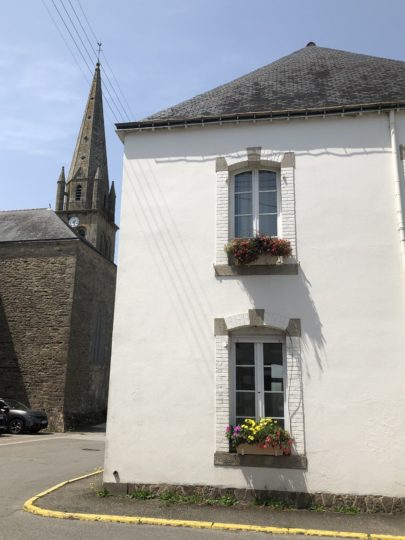What I’ve Been Up To
If you follow me on Pinterest, you probably noticed that I repin more photos under “Home Design” than on my various travel boards. Well, there is a reason for that. I am in the process of purchasing an apartment in the Marais. So you can expect more restaurant and bar suggestions in the Marais starting this summer!
I certainly will not be able to cover all the steps and important considerations when buying in France. But while I am going through the process of looking for an apartment, signing, financing the purchase and renovating, I thought it would be helpful for me to share my experiences with you. In particular, I will focus on parts of the process and other considerations than may be different from buying property in other countries (Keep in mind that my only other experience is with buying in the U.S.!) We’ll take the journey together!
In today’s post, I will write about some pre-apartment search considerations, and specifically on my decision to cut some corners and why that might (or might not) be a good idea for you as well. And of course I welcome your comments and questions along the way!
For further details on purchasing property in France, I recommend visiting the Adrian Leeds Group site and also the AngloInfo France site.
Before you start looking – Go it Alone or Get Help?
The first question you need to ask yourself before you start looking is whether it is realistic for you to look on your own, or whether it is worth the money to hire someone to help you. It’s a question I struggled with, because it’s not cheap to hire help. Generally, expect to pay an additional 3% of the purchase price for an apartment search company to assist you.
I had monitored Seloger and Particulier à Particulier for several years. Over the course of several years (at times looking seriously and at time not so seriously), I probably sent 50+ e-mails inquiring about a visit or additional information. I probably got five or six responses in total. I have heard similar stories from other apartment hunters. I started to think I would never find a place without help. That’s why ultimately I signed on with the Adrian Leeds Group to head up the search for me. And I am glad I did. I paid under the asking price for my apartment and I am convinced that another buyer would have succeeded if not for Adrian and her team working on my behalf to speed up the process and use their personal relationship with the seller’s agent to assure the seller that I was a serious potential buyer and would not be a financing risk. I picked Adrian as opposed to another apartment hunter because she has experience with rental properties as well. I wanted advice on making the right property selection from someone who understands the vacation rental market in case I decide one day to rent out my new place.
Questions to Consider When Deciding Whether to Go It Alone
That was my decision. But the choice of whether or not to hire someone is one you need to make for yourself. Here are a few considerations to ponder:
- Are you fluent in French? If not, it may be hard to negotiate or to win over the agent or seller’s trust without assistance.
- Do you live in Paris? Do you have a flexible schedule? If you do not live in Paris, or if (like me) you find it hard to leave work to visit apartments (early morning, evening, lunch time and weekend visits are quite rare), you may want to hire someone to scope out apartments. Then you only have to see the good ones.
- How familiar are you with Paris neighborhoods? I have lived in Paris for nearly five years and you may have noticed that I even have a blog about Paris. So I thought I knew the city well. But deciding where to buy an apartment can be influenced by a number of factors not always obvious to the non-expert and it may be helpful to have guidance.
- Where are you looking to buy? If you are looking primarily outside Paris or even in some of the outer arrondissements, the market may move slower. You may have more time to schedule visits and more time to get your questions answered through friends or other resources. But if you are looking in central Paris, good properties fly off the market quickly and you need to act fast.
- How paranoid are you? As a lawyer, I am always worried that I might miss a step. When I purchased in the U.S., my agent (paid by the seller) told me what to do every step of the way. And I had friends and family who were property owners who could help answer questions as well. But in France, I was willing to pay extra in part just for peace of mind.
- How confident are you in your own negotiation skills? Do you feel like you can hold your own in negotiating the price and the provisions of the purchase agreement? The notary will help to some extent in making sure you understand the provisions of the purchase agreement, but obviously the notary cannot help you with price or asking for the out-of-the-ordinary.
- Have you purchased in France before? If so, you may not need the same help the second time around!
- What is your budget? Of course you have to decide if the extra 3% is worth it.
Other Pre-Search Considerations
Again, my goal is not to write a book about buying in Paris, but rather to highlight some matters that might differ from buying in other countries. Here are a couple of additional considerations to work through before you start the search:
Budget, budget, budget. It’s crucial to fix your budget before you start looking. If you don’t, at best you may waste a lot of your time and your agent’s time, if you decide to hire someone. At worst, you may end up signing for an apartment you cannot afford. It is important not only to know your total budget but understand the French particularities, for example:
- It is typical to put 20% down but if you are a resident in France (i.e. you pay taxes in France), you could probably put only 10% down or possibly even less.
- Your ability to get a mortgage in France depends on your income and your income alone (and perhaps your age, if you older). Home equity loans generally do not exist in France, so even if you own three other houses as collateral, that may not help you. Banks in France follow the 1/3 rule. That means they are extremely reluctant (it’s probably safe to say they will NOT) lend more than would require you to pay 1/3 of your gross income in monthly payments. When I say “gross income”, I am over-generalizing. See Adrian Leeds’ website (or talk with her in person) for more on the details.
- If you are a non-resident of France, do not assume you will qualify for a mortgage just because you would in the U.S. Do not despair, most likely you will, but you may need to work with a bank that has experience working with foreigners and reading foreign tax returns (Adrian can point you to these banks who don’t shun us).
- In France, the bank will require that you get mortgage insurance regardless of your down-payment. It’s not a lot (a fraction of a percentage) but you should be aware of this as generally in the U.S. mortgage insurance is only required when you make a down-payment under a certain percentage of the purchase price.
- The notary fee runs about 6 – 7.5% in France. This means that your up-front payment will likely be much more than it would be in the U.S. Your bank may be able to cover some of this, but talk to your bank to confirm. Also be sure to speak with your tax advisor, especially if you are a U.S. taxpayer, as a portion of these fees may be deductible from your U.S. taxes.
- This leads to my next point—it is best to talk with your bank or to a mortgage broker before you start the apartment search. My mortgage broker from Ceprima has been wonderful (e-mail me for his contact details). He ran all the numbers and told me exactly how large a loan I would qualify for, how much I would have to pay each month, etc. You will have to send over a number of documents (tax returns, pay slips, etc.) so start getting all that in order early.
- Ask your bank or mortgage broker for a pre-approval letter. Mine required that I make an offer on an actual apartment first, but it is still best to let your bank or mortgage broker know that you will be asking for a pre-approval letter on short notice and find out in advance how long it will take to prepare it.
- Keep in mind also that you may be able to up your loan to cover renovations. Again, this is something to discuss in advance with your bank or mortgage broker. But be sure to ask about the details. Do I need an estimate first? Will the bank’s involvement delay the renovation process? Will the bank reimburse all my renovation expenses? Most banks will only lend up to a certain amount of the added value to the apartment, so find out first.
Neighborhood. Walk around. Even if you think you know the place, explore with an eye to actually living there, if you plan to use the apartment as a primary residence. If you plan to rent it out, do some research on the rental potential of different neighborhoods. It’s not always obvious.
Apartment criteria. It’s never too early to start thinking about the specifics of what you are looking for. Your gut instinct may be the best indicator of whether an apartment is right for you, but you need to start with some specific criteria. But more on this in the next post….
***
Have you purchased property in Paris? Or have you started looking? What other tips do you have for those thinking about starting a search?
***
Please visit the other blogs participating in the Expat Blog Hop!
|
2.
|
||
|
13.
|
15.
|
|
|
16.
|
17.
|
|
|
19.
|




